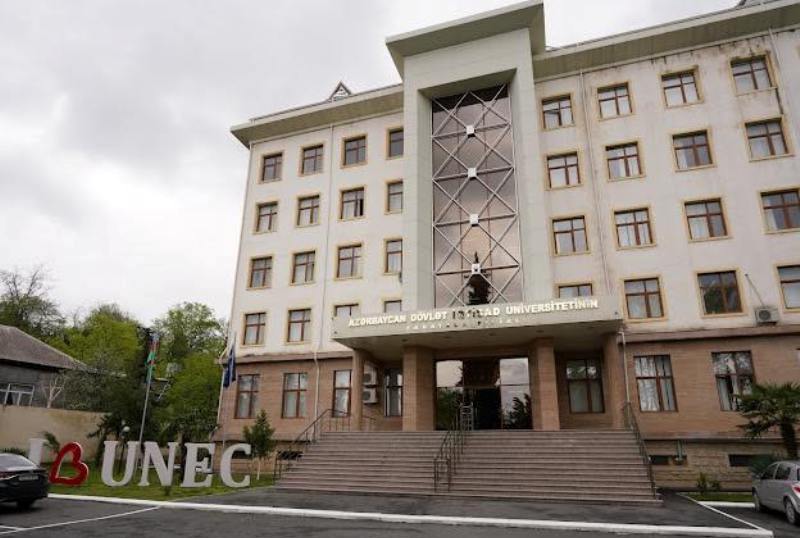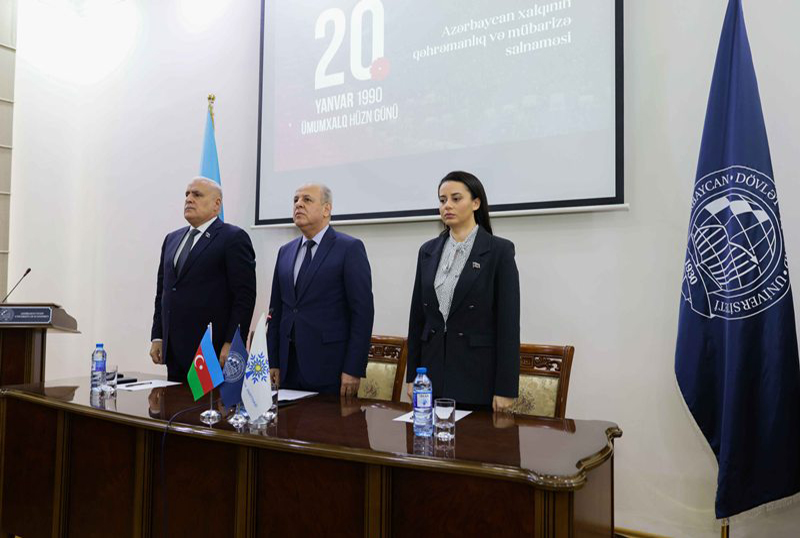While the entire world is grappling with the complex issues brought on by climate change, Azerbaijan is situated at a pivotal juncture where social, economic, and ecological imperatives converge.
The urgency of finding a solution to the global climate change crisis was underscored at the 29th Conference of the Parties (COP29) of the United Nations Framework Convention on Climate Change (UNFCCC). The outcomes of COP29 are especially significant for Azerbaijan because they underscore the nation's opportunities and vulnerabilities in the face of climate change.
Climate Change in Azerbaijan
Azerbaijan, which is in the South Caucasus region, has a variety of climates, from subtropical to mountainous. The nation is more susceptible to different effects of climate change because of its diversity. In the last 100 years, average annual temperatures in the territory of Azerbaijan have increased by 0.4-1.30C. It is anticipated that summer temperatures will rise and winter temperatures will drop. Some regions are experiencing more frequent and severe droughts due to changes in precipitation, while other regions may see an increase in flooding. Surges in the Caspian Sea, which borders Azerbaijan, may have an impact on infrastructure and coastal communities. In Azerbaijan, the socioeconomic effects of climate change are profound and diverse, influencing many different communities and sectors.
Socio-Economic Impacts
The climate changes occurring in Azerbaijan undoubtedly have a socio-economic impact on the country and are taking place in a number of important areas. Climate change has a significant impact on Azerbaijan's agriculture sector, which is also a major employer in the country. Reductions in productivity and an increase in pest growth can result from variations in temperature and precipitation. Food security is at risk because of this, particularly for rural areas where subsistence farming is a major economic activity. The issue of water scarcity is becoming more pressing due to decreased precipitation and rising demand. Conflicts over water resources may result from the limited supply of water available for industrial, drinking, and irrigation purposes. In light of climate change, Azerbaijan's energy sector, which is primarily focused on producing gas and oil, faces both opportunities and challenges. On the one hand, supply chains and infrastructure related to energy can be affected by extreme weather events. However, there is also a lot of room for the growth of renewable energy sources like solar and wind power, which can help lower greenhouse gas emissions and diversify the energy mix. A growing issue is displacement brought on by climate change, as people from rural areas may relocate to cities in quest of better opportunities for employment. Increased urbanization and stress on city services and infrastructure may result from this. It is essential to create flexible policies and infrastructure to control urban growth in a sustainable way.
COP29 and Azerbaijan's Reforms about Climate Action
The conclusions of COP29 emphasize the necessity of increased national and international commitment to addressing climate change. In order to reflect more ambitious climate goals and strategies, Azerbaijan should update and strengthen its NDCs. It is essential to increase funding for climate adaptation and mitigation initiatives, such as those involving renewable energy, sustainable agriculture, and sustainable infrastructure.
It is worth mentioning that some significant steps are presently being taken to tackle climate change in the institutional and legislative domains. Furthermore, based on the pertinent State Commission on Climate Change decision, work has begun on a number of significant papers, including the "National Adaptation Plan" and the "National Strategy for Low-Carbon Development".
Additionally, in the context of putting into practice the "Azerbaijan 2030: National Priorities for Socio-Economic Development" document's fourth priority, "Great return to territories freed from occupation," and fifth priority, "Clean environment and "green growth" country," Significant efforts are currently being made to rebuild infrastructure and create SMART infrastructure in the areas we have liberated after 30 years of occupation. Thus, in our regions freed from 30-year colonization, programs for "smart city and smart village" and the construction of a "green energy" zone have been designed and are currently being implemented.
It should be highlighted that, in 2022, Azerbaijan achieved a 34.2% reduction in emissions (with absorptions) compared to the base year (1990), according to the EIA inventory completed for the years 1990–2022. All of this is the result of the nation's successful environmental policy, which includes the use of eco-friendly technologies, an increase in the use of renewable energy sources, the substitution of natural gas for fuel oil in thermal power plants, better management of household waste, the construction of new roads, the creation of modern agricultural parks, and more. The measures taken to form forest massifs, use energy-efficient, low-carbon, renewable, and effective waste management technologies, build contemporary agroparks, establish new forest massifs, and safeguard forest regions made it feasible.
Azerbaijan's response to climate change will influence its socioeconomic environment for many years to come, based on the outcomes of COP29. Through implementation of sustainable development methods and facilitation of international collaboration, Azerbaijan can effectively address the obstacles posed by climate change and capitalize on prospects for a sustainable and prosperous future. Moving forward, it will be necessary for all facets of society to work together in order to handle the effects of climate change in a fair and efficient manner.
Murad Huseynov,
Student at the International School of Economics (ISE), UNEC
























